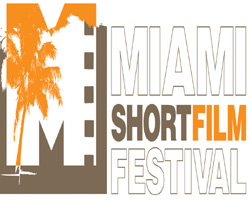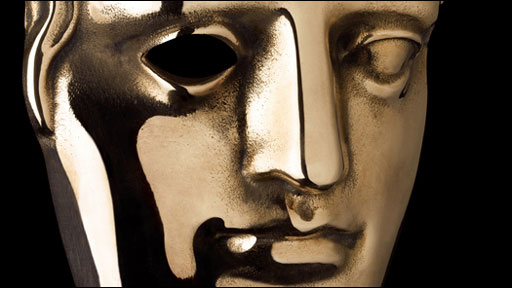|
|
||
|
Pro Tools
FILMFESTIVALS | 24/7 world wide coverageWelcome ! Enjoy the best of both worlds: Film & Festival News, exploring the best of the film festivals community. Launched in 1995, relentlessly connecting films to festivals, documenting and promoting festivals worldwide. Sorry for the disruptions we are working on the platform as of today. For collaboration, editorial contributions, or publicity, please send us an email here. User loginActive Members |
ÉCU-The European Independent Film FestivalÉCU - The European Independent Film Festival is dedicated to the discovery and advancement of the very best independent films from around the world. We are a festival who believes in our independent filmmakers and their artistic talents. ÉCU proudly provides a unique platform that brings together diverse audiences who are hungry for something other than major studio productions and original and innovative filmmakers.
The 16th edition of ÉCU - The European Independent Film Festival will take place on 9th-11th April 2021. Now open for submissions!
For more details regarding the festival, please visit our website at www.ecufilmfestival.com.
 HDSLR Cameras: The Latest Hot TrendBy Rhiannon Hobbins, Festival Manager
I was in serious post-festival daze when I first watched G-Technology’s “Faces of the Festival” film.
Surely SLR cameras are just for still photography, I thought? After
So I decided to interview Max Budgett, from Tmax Productions, who Can you tell me about the new HDSLR cameras?
The HD video mode on DSLR cameras like the EOS 5D MKII shoot a Which camera did you use for the Faces of the Festival film? We used the EOS 7D Why are the HDSLR cameras a step forward for the film industry?
Basically, It’s the results you can achieve for the price, which I So the HDSLR cameras have changed the way of filming. But specifically how did it change the way you, as a filmmaker, work?
It has made filming fun again to be honest. It’s much cheaper and
They are generally great cameras if you have the time to consider
It was entertaining watching people posing for you at the
It’s funny, people do react differently. I think it’s because it How did you achieve the slow motion effect in the Faces of the Festival film? In post-production?
No, we shot at 50fps and then transcoded the footage to 25fps, which What are some of the limitations to filming on the HDSLR cameras?
One of the main limitations is the one I just mentioned, filming The camera can get very hot if used a lot and will switch itself off.
The LCD can make it difficult to focus and is also fixed, so it is
Although most DSLRs can record sound, you wouldn’t want to unless No power zoom that other video cameras have as a matter of course.
At the moment the codecs used are no good for editing, so have to be
I say all this, but there are work arounds for all these problems
I know that when I want to make a video on my baby digital
Storage isn’t a problem, you record about 12 minutes per 4GB and we How much is a HDSLR camera going to set you back?
We bought our canon 7D for about £1250, but that’s just the body. I
I was talking with a cameraman recently who said that he was
Actually I have heard a lot of photographers are beginning to move What’s the next step for the future of filmmaking?
Video on the web was a massive step for filmmakers, giving them such 01.07.2010 | ÉCU-The European Independent Film Festival's blog Cat. : Camera Camera lens cameraman Canon EOS 5D Digital Camera Canon EOS 5D Mark II Canon EOS 7D Digital Camera Digital camera Digital cameras Digital photography Digital single-lens reflex camera ecu 2010 Entertainment Entertainment EOS 5D MKII EOS 7D faces of the festival Festival filmmakeing forward for the film industry hdslr cameras hot trends Live-preview digital cameras manager Max Budgett Optics Person Career Photography Red Digital Cinema Camera Company Rhiannon Hobbins Single-lens reflex camera slr cameras still camera Technology Technology FESTIVALS
|
LinksThe Bulletin Board > The Bulletin Board Blog Following News Interview with EFM (Berlin) Director
Interview with IFTA Chairman (AFM)
Interview with Cannes Marche du Film Director
Filmfestivals.com dailies live coverage from > Live from India
Useful links for the indies: > Big files transfer
+ SUBSCRIBE to the weekly Newsletter DealsUser imagesAbout ÉCU-The European Independent Film Festival Hillier Scott Hillier Scott (ECU)
Scott Hillier, Founder and President of ÉCU - The European Independent Film Festival
Scott Hillier is a director, cinematographer, and screenwriter, based in Paris, France. In the last 20 years, Hillier has gained international recognition from his strong and incredible cinematography, editing, writing, producing and directing portfolio in both the television and film industries.
Scott began his career in the television industry in Australia. In 1988, he moved to London getting a job with the BBC who then set him to Baghdad. This opportunity led him to 10 years of traveling around world for the BBC, mainly in war zones like Somalia, Bosnia, Tchetcheynia, Kashmir, and Lebanon. After a near fatal encounter with a Russian bomber in Tchechnyia, Hillier gave up his war coverage and began in a new direction.
He moved to New York City in 1998. He directed and photographed eight one-hour documentaries for National Geographic and The Discovery Channel. Based on his war knowledge and experience, Hillier wrote and directed a short film titled, “Behind the Eyes of War!" The film was awarded “Best Short Dramatic Film” at the New York Independent Film and TV Festival in 1999. From that he served as Supervising Producer and Director for the critically acclaimed CBS 42 part reality series, "The Bravest” in 2002 and wrote and directed a stage play called, "Deadman’s Mai l," which ran at Le Théâtre du Moulin de la Galette in Paris during the summer of 2004. He then became the Director of Photography on a documentary titled, “Twin Towers." This was yet another life changing experience for Hillier. The riveting documentary won an Academy Award for "Best Documentary Short Subject" in 2003. In 2004, Hillier changed continents again, spending three months in Ethiopia. He produced “Worlds Apart,” a pilot for ABC America / True Entertainment / Endemol. As you can see, Hillier was and is always in constant movement and enjoys working in a number of diverse creative areas including documentaries, music videos, commercials, feature and short films.
Scott studied film at New York University and The London Film and Television School. He also studied literary non-fiction writing at Columbia University. Hillier's regular clients include the BBC, Microsoft, ABC, PBS and National Geographic. Between filming assignments, he used to teach film, a Masters Degree course in Screenwriting at the Eicar International Film School in Paris, France and journalism at the Formation des Journalistes Français in Paris, France.
View my profile Send me a message The EditorUser contributionsUser links |












